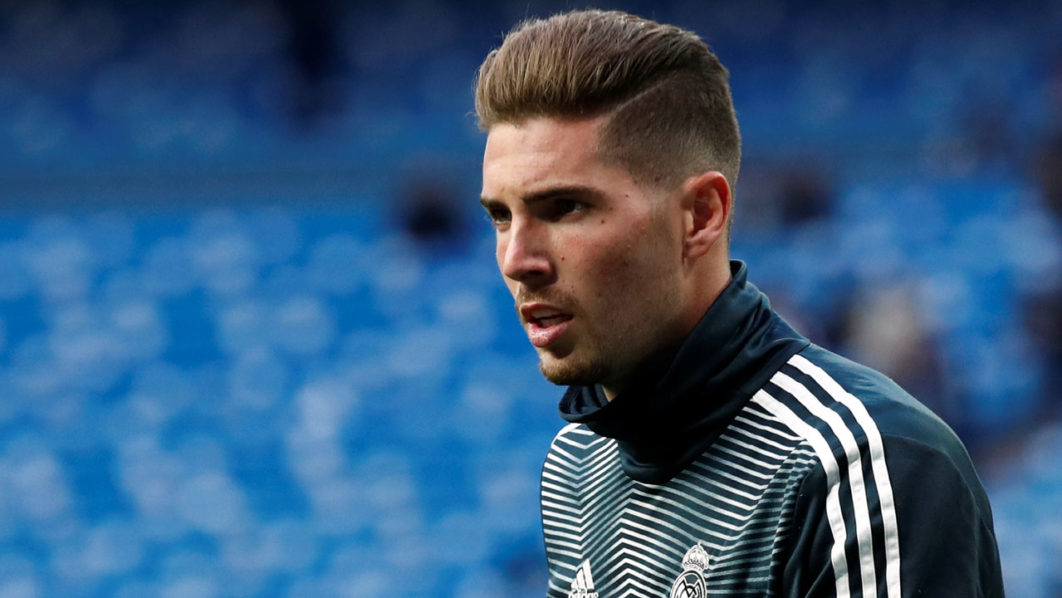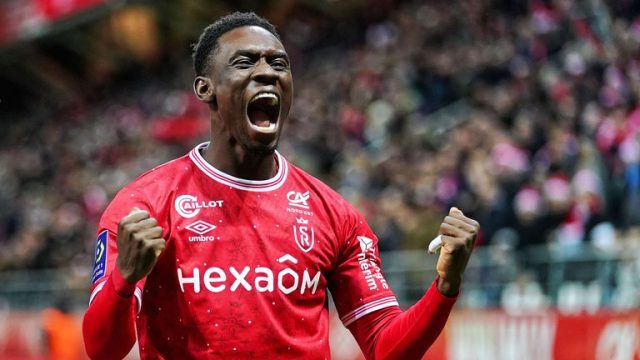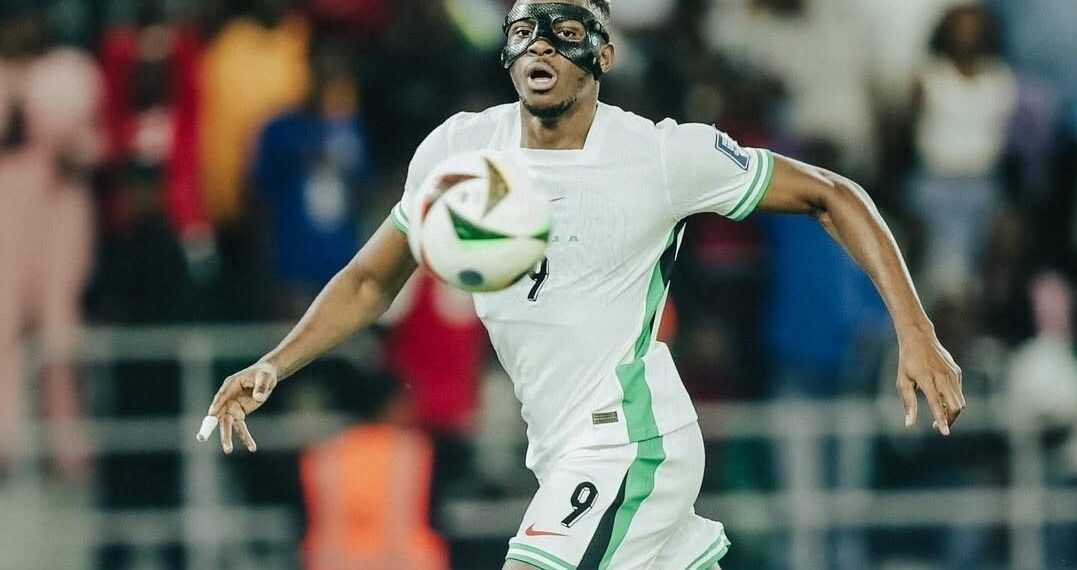Across Nigeria and West Africa, football holds a special place in the hearts of millions. From lively viewing centres in Lagos to bustling football pitches in Accra, the passion for the sport unites communities, regardless of borders. In a move that has generated serious interest among African football fans, particularly those who follow the journeys of African diaspora athletes, Luca Zidane—the son of French football icon Zinedine Zidane—has made headlines for pledging his international allegiance to Algeria, the birthplace of his grandparents.
Luca Zidane’s Choice: A Family Legacy Redefined
At 27 years old, Luca Zidane has already carved out a notable career for himself in Europe, currently playing as a goalkeeper for Granada in Spain’s Segunda División. While his early footballing exploits were within France’s youth system, the shot-stopper has now opted to wear the colours of Algeria. This decision, announced just ahead of Algeria’s crucial 2026 FIFA World Cup qualifier against Somalia, has sparked debate and admiration across the continent.
During a press conference held in Oran, Algeria, Zidane spoke candidly about his reasons for representing Algeria on the international stage. “I’m very happy to be here. It makes me proud and I will give everything at 100 percent to make the Algerian people proud,” he reportedly stated, according to Algerian Football Federation media channels. This sentiment resonates deeply for many Nigerians and West Africans who are familiar with the complexities of national identity, especially among individuals with dual heritage.
Why Luca Zidane’s Decision Is Big News in Africa
For many African football fans, the commitment of foreign-born players—especially those with famous football lineage—represents a powerful statement about belonging and legacy. Historically, Nigeria and Ghana have also witnessed notable cases of diaspora stars opting to play for their countries of origin, with mixed reactions from home and abroad. According to football analyst Tunji Okechukwu, based in Abuja, “When players like Luca Zidane choose to play for their African roots, it reminds us that talent and identity can transcend borders. It sends a strong message that the African football journey is attractive and valuable.”
Zidane’s decision mirrors that of other high-profile players who have chosen their African heritage over European options. Wilfried Zaha (born in Ivory Coast, raised in England) and Kevin-Prince Boateng (of Ghanaian descent) are just a few examples. Their impact has been significant—not just in terms of improving squad performance, but in inspiring younger generations across Africa to believe they too can make such choices.
Navigating Family, Heritage, and Public Expectations
Zinedine Zidane, Luca’s father, is a household name in global football, having won the FIFA World Cup for France in 1998 and coached Real Madrid to multiple Champions League victories. The younger Zidane is well aware of the shadow cast by his father’s legendary achievements. However, as Luca himself stated at the press briefing, “My father had his journey, his career—a great one. As for me, I have my journey, my career.”
It’s also important to note that family support played a crucial role in his decision. “All my family are proud of me and back my choice, my grandfather is happy that I’m in Algeria and that I’ve made this decision,” Luca remarked. For many Africans, where family heritage is deeply valued, this aspect of his choice resonates strongly. According to Lagos-based sports commentator Ayo Adeyemi, “When you think of Zidane, you think of football history. Now Luca is carving a new story, reconnecting with his roots. This speaks to many young Africans in the diaspora who grapple with questions of where they belong.”
The Rules of International Representation
FIFA eligibility rules allow players who have not played a competitive senior match for one country to switch allegiance to another country they qualify for through parents or grandparents. Luca Zidane had played for France at youth levels but not at senior level, clearing his path to represent Algeria. This is a process familiar to Nigerian fans, with players like Alex Iwobi (who switched from England) and Ola Aina (who also transitioned from England’s youth system) experiencing similar eligibility pathways in recent years.
These decisions can sometimes spark emotional responses among fans. Some, expressing their opinions online and in local media, argue that African countries should focus on nurturing homegrown talent. Others point to the benefits that international experience and diverse backgrounds bring to African teams. In a recent interview, Ghanaian sports journalist Akosua Mensah explained: “Diaspora players often bring valuable training and exposure, which can elevate the entire squad. But it’s also important to balance this by investing in grassroots development.”
Broader African and Global Significance
Luca Zidane’s move to Algeria could have far-reaching implications for African football. It may influence more players of African descent in Europe or elsewhere to consider representing their countries of heritage on the big stage. This trend has already proven successful in countries like Senegal, which benefited from the international experience of several dual-nationality stars in their Africa Cup of Nations triumph.
On the global stage, the appeal of African national teams continues to grow. This is reflected in the FIFA rankings, where Nigeria, Senegal, Morocco, and Algeria are regularly among the continent’s top teams. Their success is partly attributed to blending locally developed players with those who have honed their skills abroad. For African football federations, striking the right balance—and managing expectations—remains an ongoing challenge.
Vision for Nigeria and West Africa
As Nigeria eyes qualification for the FIFA World Cup, and as Ghana, Ivory Coast, and other West African teams strategise for future continental and global tournaments, the story of Luca Zidane offers key lessons. Embracing the talents of the diaspora while maintaining strong local football pipelines could be the formula for future success. According to a recent analysis by The Guardian Nigeria, national teams that leverage all their available resources—including diaspora links—tend to have the edge in today’s competitive football landscape.
Fans in Nigeria and Ghana have already begun reacting to Luca’s decision, with many seeing it as a sign that Africa remains a beacon for footballing excellence. Social media has been abuzz, with hashtags celebrating his allegiance switch and lively debates over what it means for the future of the beautiful game on the continent.
Challenges and Expectations: The Road Ahead
While the experience Luca brings will strengthen Algeria’s squad, the pressure to deliver results is now even greater. Supporters expect commitment, professionalism, and success on the field. But it is also true, as many West Africans have realised, that the decision to represent a national team is not only about football—it reflects wider conversations about identity, migration, and opportunity.
As the qualifiers proceed, all eyes in Nigeria, Ghana, and across the continent will be watching to see how Luca Zidane fares, whether he can inspire Algeria to World Cup qualification, and whether his story will motivate other talented diaspora Africans to return to their footballing roots.
Looking Forward
With the next round of World Cup qualifiers imminent and Algeria counting on all available talent, Luca Zidane’s journey offers both inspiration and a blueprint for countries across Africa. As one Enugu-based football coach, Chijioke Nwosu, puts it: “The world is watching. Africa’s sons and daughters have what it takes—it’s up to the federations and fans to welcome them and build a legacy together.”
Do you think Nigeria and other West African nations should do more to tap into their diaspora football talent for national teams? What’s your view? Drop a comment below and follow us for breaking sports stories and expert analysis!
For general support or to send in tips, contact us at support@nowahalazone.com.
Stay connected for all football and sports updates—follow us on Facebook, X (Twitter), and Instagram! We look forward to hearing your thoughts and stories.










